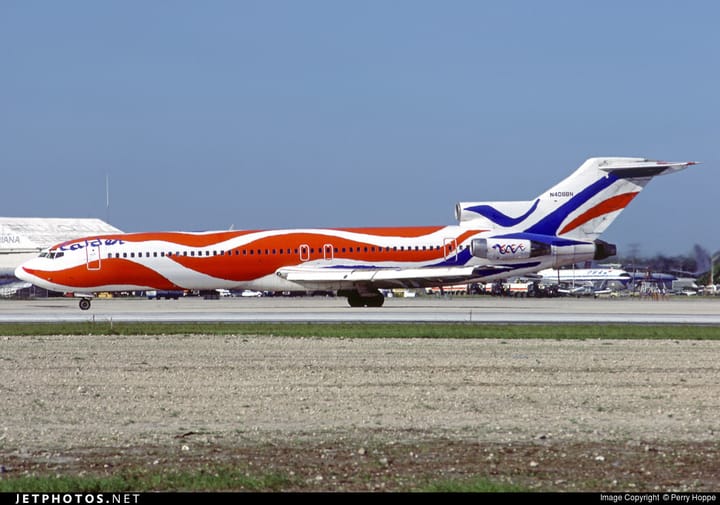On June 13, 2024, the aviation world bid farewell to one of its true visionaries. Frederick W. Smith, founder of FedEx, passed away at the age of 80, leaving behind a legacy that forever changed the way the world ships and connects. Smith wasn’t just the architect of a global logistics giant—he was the father of overnight delivery, a concept that seemed impossible until his bold vision and technical innovation turned it into an everyday expectation.
The Birth of Overnight Delivery: A Revolution Takes Flight
To comprehend the scale of Fred Smith’s impact, one needs to look back to the early 1970s. The air cargo industry was, at the time, fragmented and inefficient. Packages traveled when space was available on passenger flights, often leading to delays, lost items, and a lack of reliability. Smith, a Yale graduate and former Marine Corps officer, envisioned something radically different. His 1965 college paper famously outlined the need for a system designed specifically for time-sensitive shipments—a network where packages would travel point-to-point overnight, using dedicated aircraft and a central hub.
In 1971, with a $4 million inheritance and $90 million in venture capital, Smith launched Federal Express. The company’s signature move: a “hub and spoke” model centered in Memphis, Tennessee. Here, planes would converge at a central location, swap packages, and fan out to their final destinations by morning. On April 17, 1973, 14 Dassault Falcon 20 jets took off carrying 186 packages to 25 American cities. It was the start of a revolution.
Innovation in Action: How Smith Changed Aviation Forever
Fred Smith’s vision didn’t just create a new shipping model—it forced the aviation industry to adapt and modernize:
- Dedicated Air Cargo Fleets: FedEx was among the first to operate a dedicated fleet of cargo jets, custom-configured for package delivery rather than passenger comfort.
- Advanced Tracking Systems: Smith pushed for barcoding and real-time tracking, giving customers unprecedented visibility into their shipments. The famous “FedEx tracking number” became an industry standard.
- Night Operations: By coordinating late-night flights and rapid ground handling, FedEx set a new bar for logistics efficiency—so much so that the phrase “FedEx it” entered the popular lexicon as a synonym for urgent delivery.
- Fleet Innovation: Over the years, FedEx became a key customer for aircraft like the Boeing 727, McDonnell Douglas DC-10, Airbus A300, and later, the Boeing 777F, constantly driving demand for freighter conversions and new cargo-specific designs.
Smith’s insistence on reliability, speed, and technology raised the bar not just for cargo airlines, but also for the entire aviation industry. Airports upgraded facilities to accommodate night operations. Aircraft manufacturers developed new freighter variants. Even regulatory bodies adapted, recognizing the growing importance of air cargo to the global economy.
Why Fred Smith’s Passing Matters Now
Smith officially stepped down as FedEx CEO in 2022, but his death comes at a pivotal time. The company—once the unchallenged leader in overnight express—faces a rapidly changing landscape:
- Shifting Market Dynamics: E-commerce giants like Amazon have built their own logistics networks, eroding FedEx’s market share. Consumer expectations for free, fast shipping have compressed profit margins across the industry.
- Rising Competition: UPS, DHL, and regional startups are innovating with new aircraft, automation, and data-driven logistics models.
- Technological Disruption: The rise of electric aircraft, drones, and autonomous ground vehicles promises to shake up the next generation of cargo operations. FedEx must decide where to invest—and how to stay ahead.
- Sustainability Pressures: With aviation under scrutiny for emissions, the cargo sector faces pressure to modernize fleets and adopt greener practices—an expensive, complex challenge for a company with hundreds of aging jets.
All of this places FedEx at a true crossroads. The business model Smith invented is still the backbone of global commerce, but new realities demand fresh thinking. Can the company retain its innovative edge without its founder’s guiding hand?
The Ripple Effects: Impact on Aviation and Beyond
Fred Smith’s influence extends far beyond FedEx’s purple-and-orange jets. His innovations shaped the entire air cargo industry and, by extension, global business and consumer expectations:
- Airport Development: Major cargo hubs like Memphis, Louisville, and Anchorage owe their prominence to the rise of overnight express. These airports became economic engines for their regions, creating thousands of jobs and drawing investment.
- Aircraft Technology: FedEx’s demand for reliability and payload capacity pushed manufacturers to develop longer-range, more efficient freighters. The Boeing 777F and converted 767s, for example, are direct descendants of this pressure.
- Economic Globalization: FedEx’s network enabled just-in-time manufacturing, e-commerce, and international trade at unprecedented speed. Today, a critical medical device or a replacement auto part can be shipped across continents overnight—a feat that would have been impossible before Smith’s era.
- Passenger Experience: While passengers might not think about cargo, the efficiency and reliability of modern air travel owes much to the innovations pioneered on the cargo side. Enhanced tracking, streamlined ground operations, and even the ability to move lost luggage quickly are all legacies of the FedEx model.
Perhaps most importantly, Smith’s story inspired a generation of aviation entrepreneurs. The “can-do” spirit that drove a handful of Falcons through the night in 1973 echoes in the air taxis, drone startups, and sustainable aviation ventures of today.
Looking Ahead: FedEx at a Crossroads
As FedEx navigates a new era, the question is whether it can reinvent itself once more. The company’s current leadership faces tough decisions: invest heavily in next-generation aircraft? Double down on automation or drones? Partner with tech firms, or compete against them? Every option carries risk, but also the potential for innovation that would make Fred Smith proud.
For aviation enthusiasts, the story of Fred Smith is a testament to the industry’s power to change the world. His legacy is visible every night, as hundreds of widebody freighters crisscross the planet, their navigation lights a tribute to the man who believed the world could—and should—move faster. Whether FedEx leads the next chapter or is overtaken by new disruptors, Smith’s foundational idea—that the sky itself could be a highway for urgent cargo—will endure.
Conclusion: The Enduring Legacy of a Cargo Pioneer
Fred Smith’s life is a case study in vision, resilience, and the transformative power of aviation. He didn’t just build a company; he built an industry and rewrote the rules of global commerce. As FedEx stands at the threshold of technological upheaval and fierce competition, it does so on the shoulders of a founder who never shied away from risk—or from reimagining what was possible in the skies.
For avgeeks, Smith’s legacy is everywhere: in the roar of a midnight MD-11 climbing out of Memphis, the hum of a 777F lining up at Anchorage, or the simple expectation that you can ship anything, anywhere, overnight. The crossroads may be daunting, but the path ahead is illuminated by a half-century of innovation. As we salute Fred Smith, we watch with keen interest to see how his company—and the entire world of aviation—will chart its next course.


